In the late 19th century, France witnessed a revival of 18th-century styles, especially the Louis XVI neoclassical aesthetic. This elegant display cabinet is a prime example of that resurgence: its harmonious, symmetrical lines — inherited from the classical vocabulary — confer a refined and stately presence. During the Second Empire and Belle Époque periods, cabinetmakers strived to recapture the grandeur of the Louis XVI style, employing luxurious materials and meticulous ornamentation to satisfy an elite clientele eager to evoke the splendor of the Ancien Régime in their homes.
Description and MaterialsThis is a high-quality vitrine crafted from fine exotic wood, likely mahogany, with beautifully figured veneer work. Glazed on all sides, it offers a 360-degree view of the displayed items, an ideal feature for showcasing collectibles. The interior is lined with a rich burnt-orange velvet, providing a warm backdrop that enhances the pieces placed within. The vitrine features a front door with beveled glass and multiple display shelves inside. Its generous dimensions (height 176 cm, width 72 cm, depth 37 cm) make it an impressive yet functional piece, perfect for presenting fine porcelains, bronzes, or other objets d’art.
Vernis Martin Panel and Ormolu MountsThe focal point of the decoration is a hand-painted Vernis Martin medallion set into the cabinet door, depicting an 18th-century courting scene on a leather panel. Vernis Martin is a lustrous lacquer technique developed by the Martin brothers in mid-18th century France, used to imitate the sheen of Asian lacquer while depicting European subjects. It involves applying tinted varnishes in multiple layers, producing a deep, glossy finish that both protects and embellishes the painted scene. In this piece, the pastoral Watteau-esque scene is rendered with delicate colors and fine detail, encapsulating the romantic charm of the 1700s while reflecting the historicist taste of the late 1800s.
The cabinet is further adorned with an abundance of gilt bronze mounts (ormolu) of exceptional quality. Finely chiseled floral swags, ribbon bows, laurel wreaths, rosettes, and other neoclassical motifs in gilded bronze frame the medallion and accentuate the structure of the vitrine. These mounts not only add a striking visual contrast with the mahogany wood but also attest to the superior craftsmanship involved – the chasing and mercury-gilding are executed to a high standard, akin to the mounts on royal furniture of the 18th century. The cabinet stands on four shaped legs, each enriched with gilt-bronze sabots and ornaments for stability and style. Overall, the combination of the lustrous Vernis Martin panel and the shimmering ormolu mounts imbues the piece with opulence and artistry.
Historical Context and Majorelle AttributionAlthough unsigned, this vitrine is confidently attributed to Louis Majorelle of Nancy based on its design and superior execution — hallmarks of Majorelle’s early work. In the 1880s, before achieving fame as a leader of Art Nouveau, Louis Majorelle (1859–1926) produced outstanding furniture revivals in Louis XV/Louis XVI. The Majorelle firm in Nancy – which Louis took over in 1879 – became renowned for its superb craftsmanship and faithful interpretations of French eighteenth-century designs. The workshop even supplied pieces to the Paris market (through a showroom at 56 rue de Paradis), catering to wealthy clients in Paris and beyond. For instance, King William III of the Netherlands commissioned a suite of furniture from Majorelle’s atelier in the late 1880s.
The fine detailing and balanced ornamentation of this cabinet are characteristic of Majorelle’s Belle Époque productions, and closely resemble other documented vitrines from his workshop (some still bearing the firm’s label with the Nancy and Paris . The artistry on display – from the carved crest to the gilt bronzes – foreshadows the creative excellence Majorelle would soon channel into his Art Nouveau. In this sense, the vitrine stands as a testament to a transitional phase in Majorelle’s career: an authentic antique-style creation completed on the eve of the Art Nouveau movement in Nancy.
Provenance: from the collection of a wealthy Parisian family
Dimmensions
height - 176 cm,
width - 72 cm,
depth - 37 cm



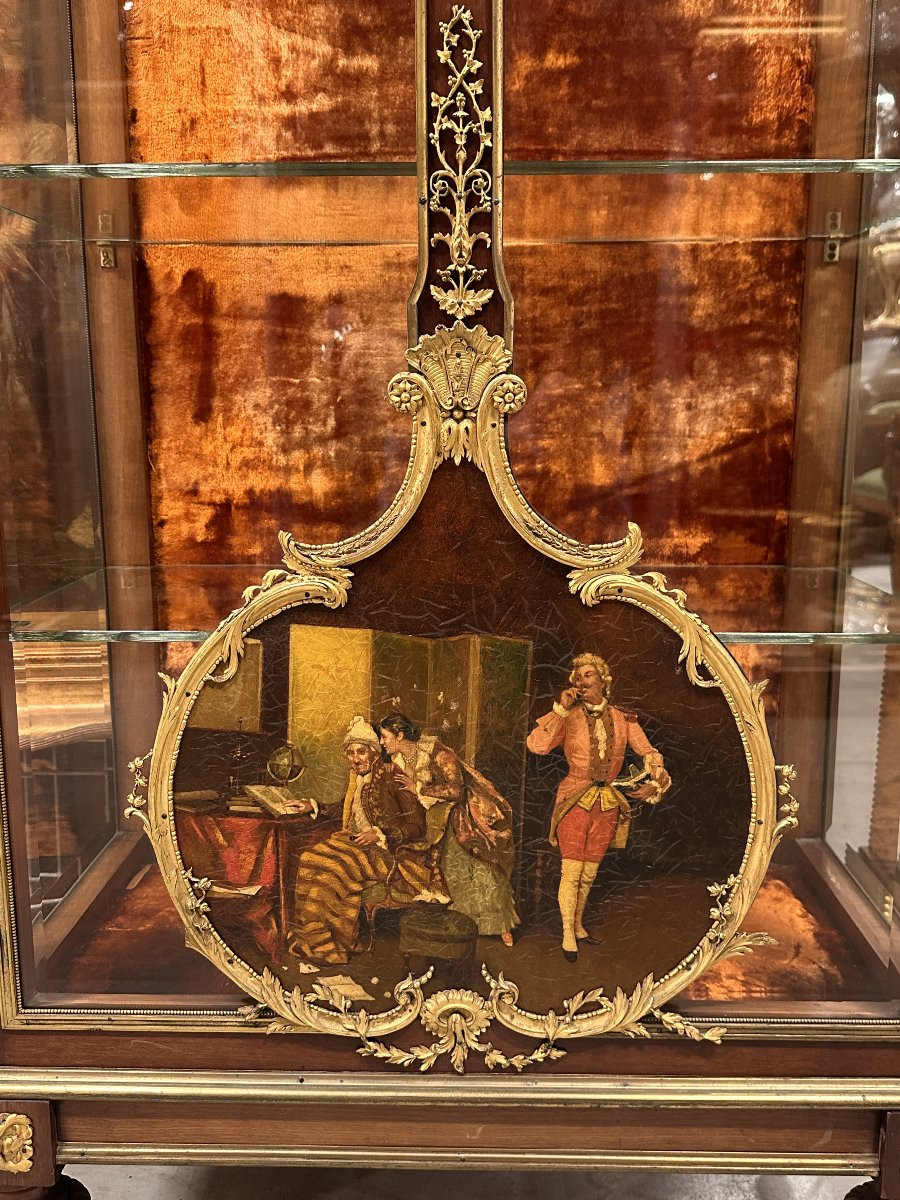
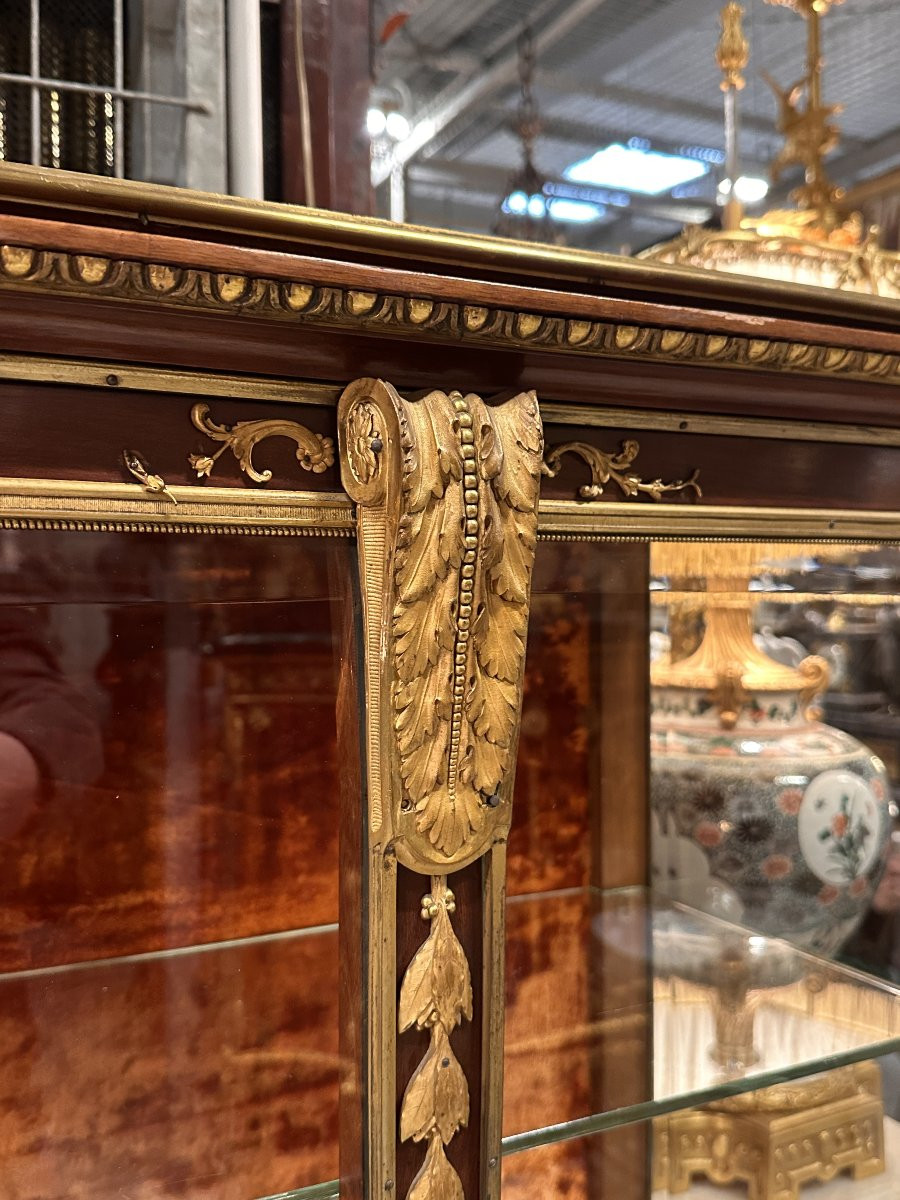
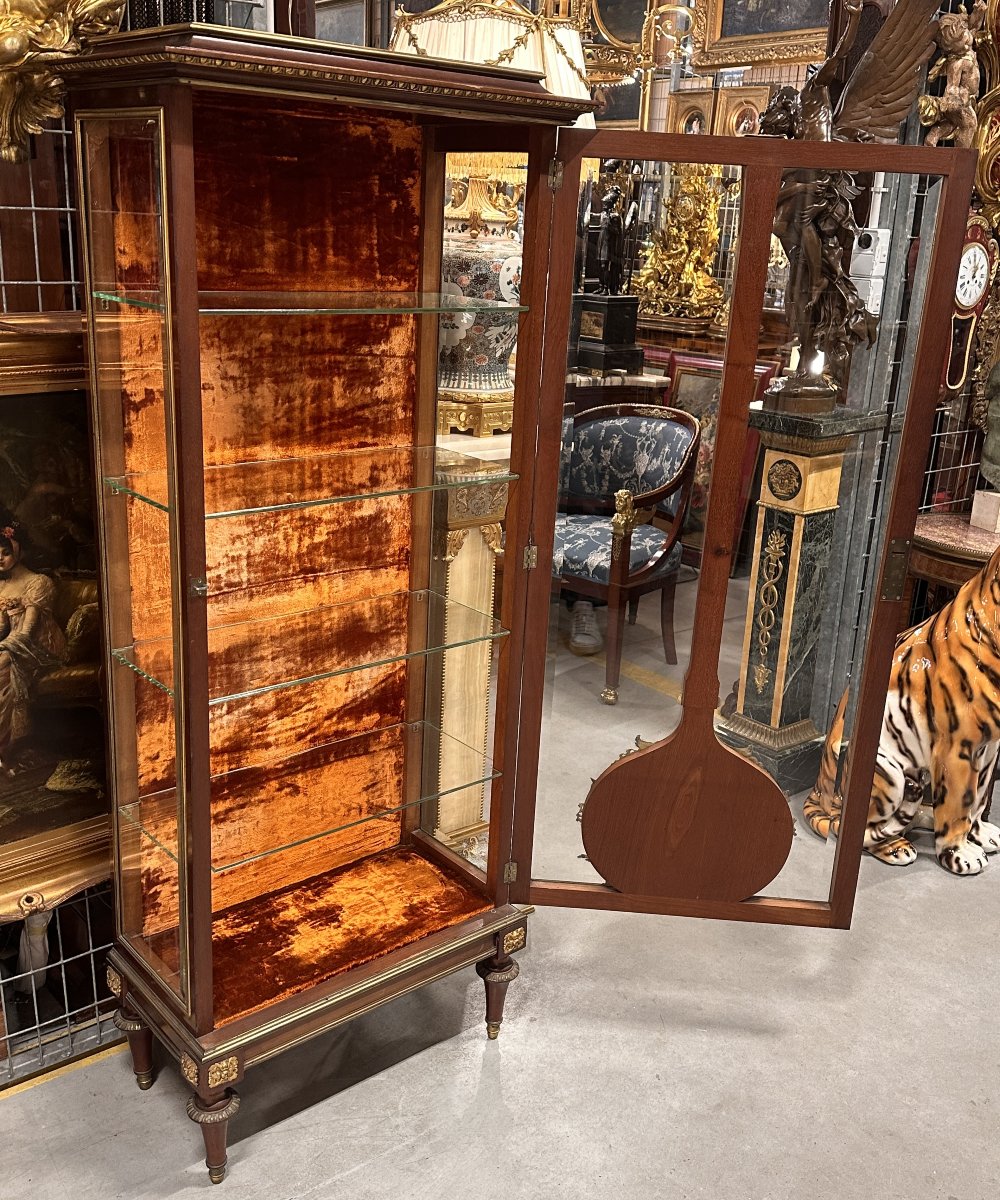


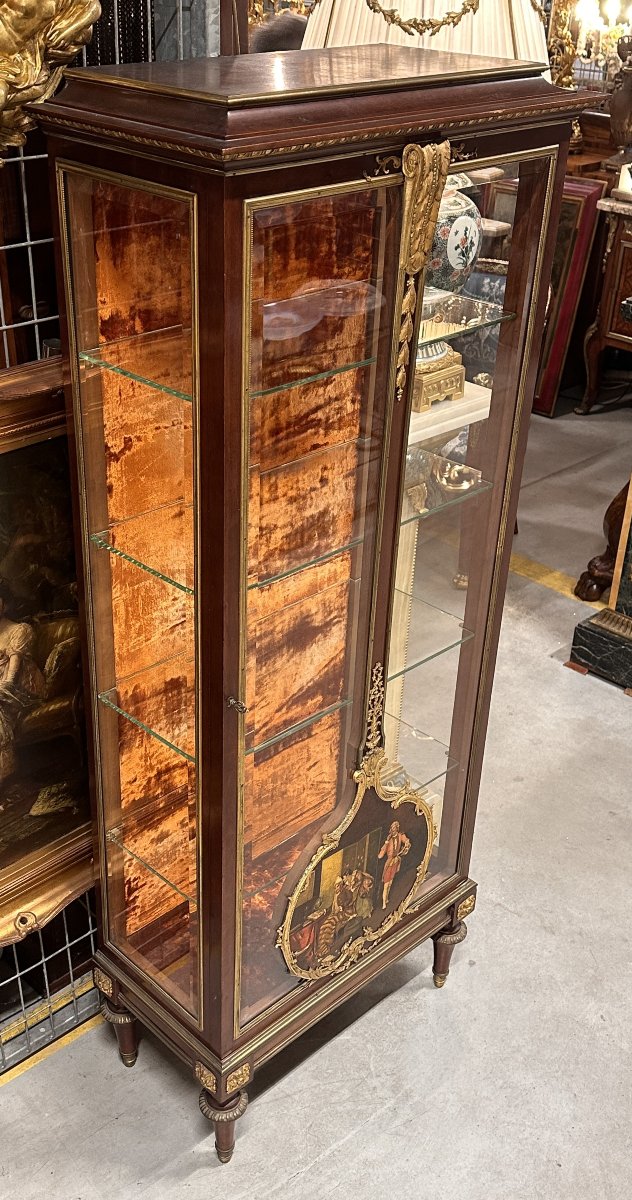


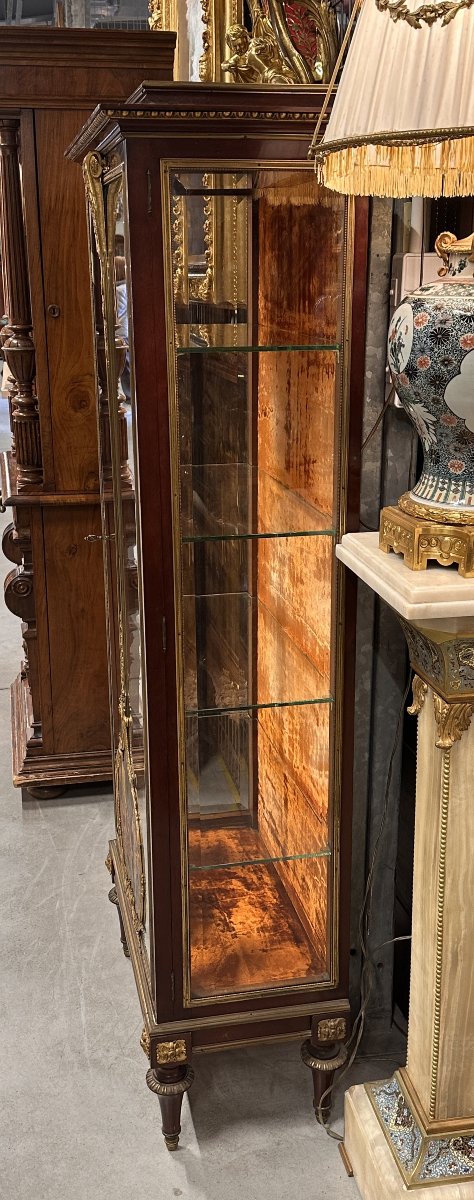
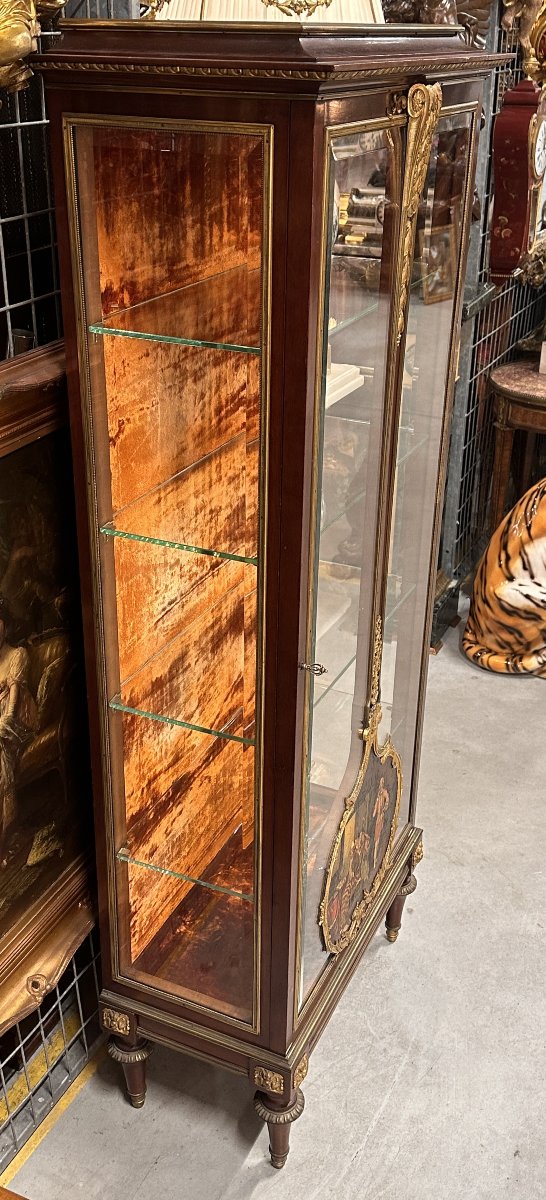














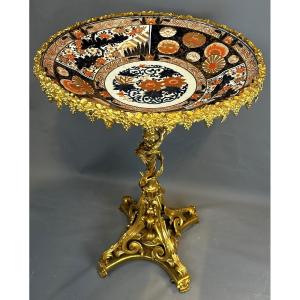


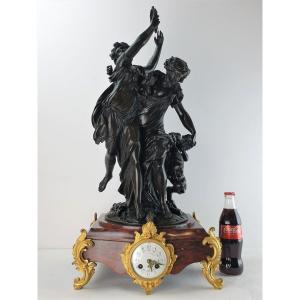
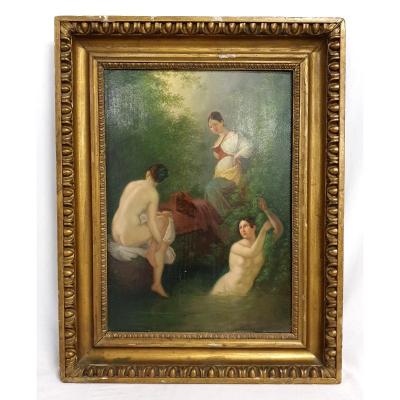





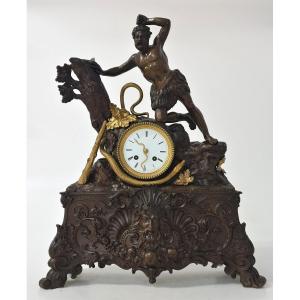

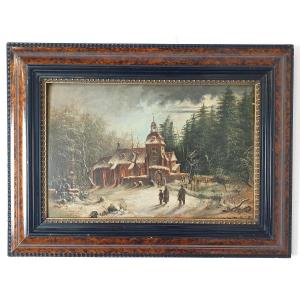



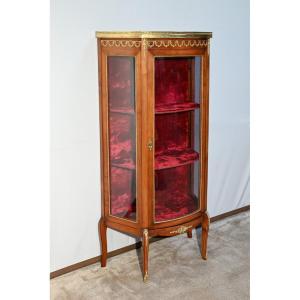




 Le Magazine de PROANTIC
Le Magazine de PROANTIC TRÉSORS Magazine
TRÉSORS Magazine Rivista Artiquariato
Rivista Artiquariato